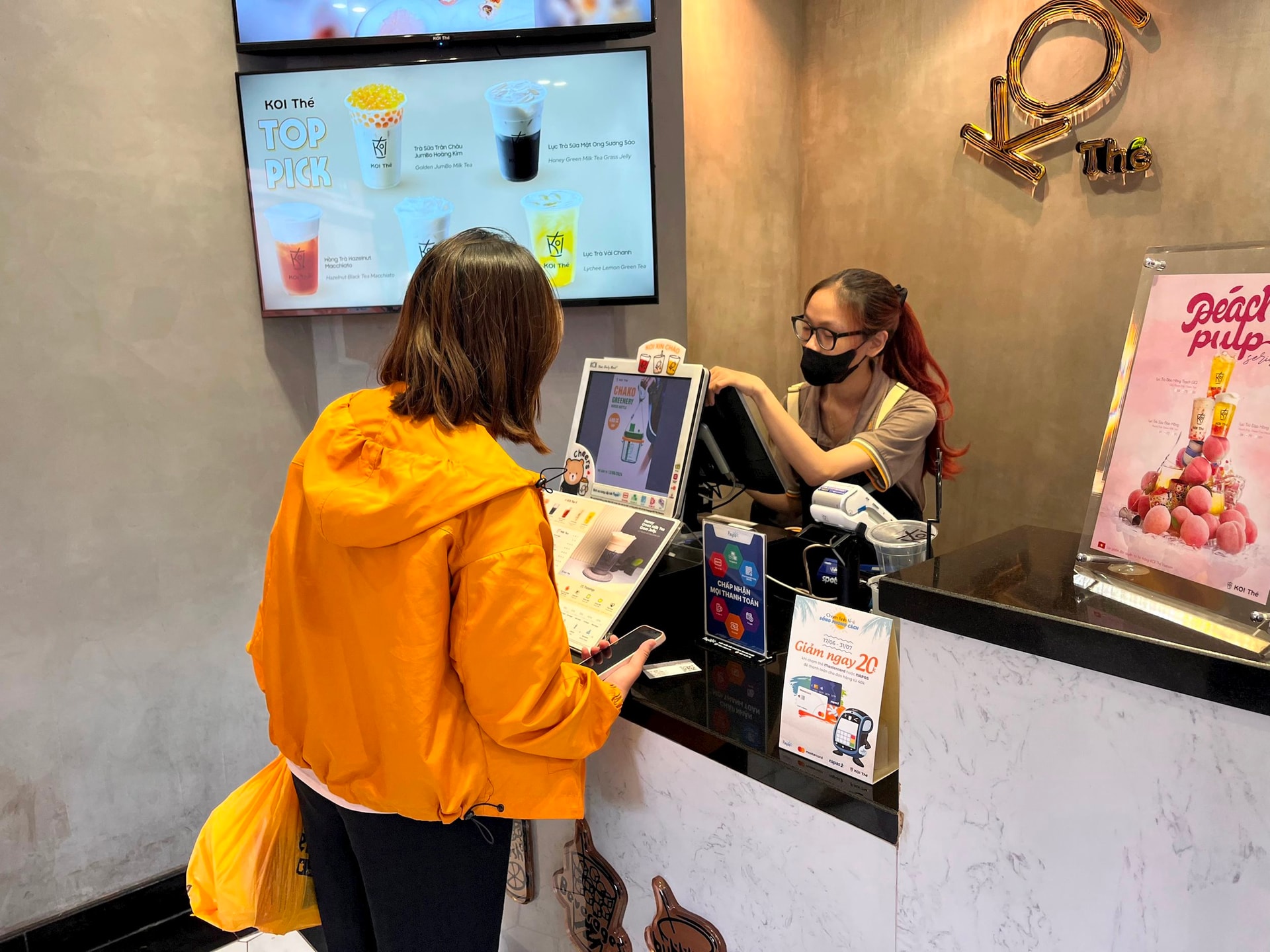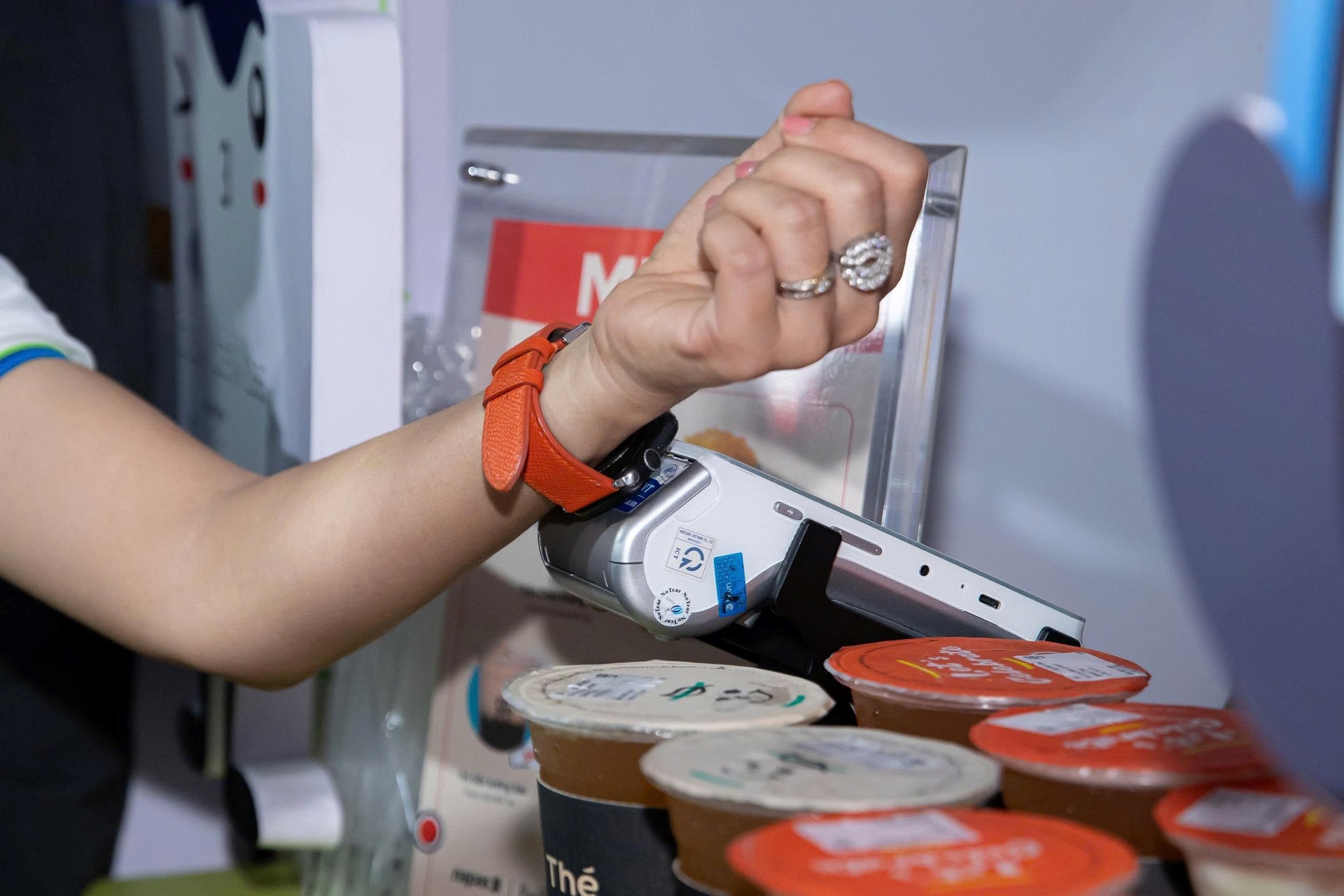A recent report by Payoo highlights that in the first half of 2025, Vietnam’s payment market continued to witness the spread of cashless transactions in both the public and private sectors.
In tandem, a slew of new tax and invoice policies, along with the government-led digital transformation, are gradually shaping a more transparent and modern business environment.
Digital Payments Contribute to Market Transparency
In recent years, cashless transactions have facilitated significant reforms, ranging from revenue transparency and accounting automation to the implementation of e-invoices and more effective tax management.
A crucial step has been the introduction of new tax regulations, such as households and individuals with an annual turnover of VND 1 billion or more no longer being subject to the tax quota but being mandated to use e-invoices generated from cash registers with a direct connection to the tax authorities.
Simultaneously, accounting processes such as revenue recognition and cost accounting are being digitized and automated. AI technology is also efficiently leveraging transaction data from retail systems, contributing to optimized operations and the promotion of the digital economy.
According to Payoo’s report, the implementation of economic transparency policies related to taxes and invoices is seen as an inevitable long-term trend. However, initially, it may overwhelm small businesses and merchants, necessitating a suitable roadmap and support for a gradual adaptation.
In reality, payment solution providers are increasingly focusing on this merchant and household segment.
For instance, they are developing an “All-in-one” solution integrated directly into the seller’s application, enabling them to simultaneously perform three tasks: selling, accepting electronic payments, and issuing invoices connected to the tax authorities, thus saving resources and operational costs.
On the banking and card organization front, efforts are being intensified to expand the ecosystem of affordable and user-friendly payment devices, such as Soft POS (smartphone payment applications) and “speaker notification” QR devices.

Robust Electronic Payment Adoption in Both Public and Private Sectors
In the public services sector, aligning with the government’s digital transformation agenda, numerous government agencies and public institutions have embraced cashless payments. Administrative fees and charges at UBND and ministries have been integrated with online payment options.
Concurrently, several museums and historical sites managed by the state have implemented POS payment methods, including QR code scanning and card payments, making it more accessible and convenient for citizens, such as Payoo’s cashless payment options at the Da Nang Museum and the War Remnants Museum in Ho Chi Minh City.
Notably, in major cities, public transportation systems like metro and bus rapid transit have adopted cashless payment methods.
According to the Ho Chi Minh City Department of Transportation, approximately 70% of passengers opt for cashless payments on metro lines, signifying a distinct shift in urban mobility habits and underscoring the effectiveness of digital transformation in public transportation.
In the private sector, the F&B industry maintains its leadership in electronic payments, attributed to the growing adoption of cashless transactions by restaurant chains and the incentives provided by banks and card organizations.

Other sectors, such as retail, supermarkets, and convenience stores within the Payoo partner ecosystem, continue to demonstrate stable growth, driven by the essential spending needs of the population.
Additionally, the fashion and luxury retail sector has witnessed a slight recovery, bolstered by the resurgence of domestic and international tourism.
Businesses in the health and beauty industry, including pharmacies, clinics, and spas, have also experienced growth in cashless payment values, indicating that individuals continue to prioritize investments in their physical and mental well-being.
Enhancing the Cashless Experience with VietQRPay, Apple Pay, and Click to Pay
In the first half of 2025, cashless payments not only expanded in terms of usage but also witnessed an upgrade in the quality of the user experience due to the emergence and rapid popularity of modern payment methods like VietQRPay, Apple Pay, Samsung Pay, and Click to Pay.
The widespread adoption of the VietQR standard has enhanced interoperability between e-wallets and banks. NAPAS recently implemented VietQRPay (QR for payment) to synchronize payment channels and connect e-wallets, banks, and retailers.

Customers using Apple Pay on their watches for payments.
Simultaneously, Apple Pay has been gaining traction, with an average monthly growth rate of 15% as per Payoo’s report.
Notably, since May 2024, with NAPAS officially integrating domestic cards into Apple Pay, a broader segment of Vietnamese consumers has been able to access this convenient payment method.
These new methods, including VietQRPay, Apple Pay, Samsung Pay, and Click to Pay, have met expectations for convenience and security, enhancing user experiences with each transaction.
Digital Transformation for Traditional Market Vendors: Embracing the Nation’s Digital Shift
Small business owners and traders of traditional markets are empowered with digital skills and e-commerce training. They are provided with access to advanced digital technology solutions and subsidized usage costs to expand their market reach.
Is it Lawful for Companies to Withhold Annual Wage Increases from Law-Breaking Employees?
The annual salary increment for employees is subject to mutual agreement between parties and in adherence to company policies. It is a carefully considered process, taking into account the dedication and hard work of our valued staff, and is an integral part of our commitment to fostering a positive and rewarding work environment.
The Ultimate Digital Solution for Savvy Sellers.
“BVBank, a leading Vietnamese bank, has introduced a revolutionary digital solution for merchants – DIGISTORE. This innovative platform is a game-changer in the market, offering a comprehensive suite of tools that streamline all customer transactions into one seamless interface. With DIGISTORE, merchants can effortlessly manage their operations and boost their business efficiency.”
The Digital Transformation Race in Banking: A Decade in Review
In recent times, the banking industry has been at the forefront of digital transformation in Vietnam.





















